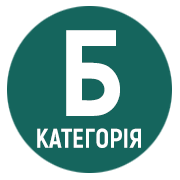THE SYNONYMIC PARADIGM OF THE CONCEPT TOLERANCE (ON THE MATERIAL OF ENGLISH, GERMAN, RUSSIAN, UKRAINIAN LANGUAGES)
DOI:
https://doi.org/10.31494/2412-933X-2019-1-8-154-161Keywords:
concept; view of the world; synonymic row, thematic group, component analysis.Abstract
The present article is dedicated to the problem of verbalization of the concept TOLERANCE in the linguocultures of Great Britain, Germany, Russia and Ukraine. The use of the methodology of concept analysis at the overlapping of linguocultural and linguo-cognitive approaches offered by L. Kompantseva is put forward. The methodology based on the following parameters: semantic analysis of the keyword which nominates the concept; lexical-semantic analysis of systematic links; etymological analysis of the key words; semantic analysis of direct and indirect nominations; interpretive semantic analysis of hyperlinks; interpretive semantic analysis of the contexts; interpretive analysis of associations related to the investigated concept; analysis of the key ideas which determine the investigated concept. Based on associative dictionaries, dictionaries of synonyms and the associative experiment, the synonymic paradigm of the concept has been investigated. The article substantiates the use of the term “thematic group”; common and distinctive thematic groups of synonyms of the concept TOLERANCE verbalizer in the English, German, Russian and Ukrainian linguocultures have been defined, and its component analysis has been held. The associative analysis made it possible to define common and specific thematic groups in the studied linguocultures. The following thematic groups are recognized as specific: “satisfaction”, “reward”, “endurance”, “fortitude”, “impartiality” – English linguoculture; “tranquility”, “right of free movement and residence”, “nobleness”, “generous nature”, “advertence”, “generosity”, “freedom of actions” – German linguoculture; “gentleness”, “pride”, “freethinking” – Russian linguoculture; “humanity”, “mutual respect”, “mutual understanding”, “mannerliness” – Ukrainian linguoculture. The results of the study demonstrated a disproportion of actualization of the concept TOLERANCE, due to extralinguistic factors, historical, socio-political, philosophical features of formation of national views of the world.
References
Arnold, I. V. (1984) Lexico-Semanticheskoe pole v jasyke i semanticheskaja setka texta. Text kak object complexnogo analysa v vysshem uchebnom savedeniji [Lexical-Semantic Field in the Language and Semantic Network of the Text. Text as an Object of Comprehensive Analysis in a Higher Educational Institution]. Leningrad. Publishing House of Leningrad University.
Butenko, N. P. (1979) The Dictionary of Associative Standards of the Ukrainian Language. Lviv. Vishcha shkola.
Collins English Dictionary. (2006) London. Harper Collins Publishers.
Deutsches Synonymwörterbuch http://synonyme.woxikon.de/ synonyme/toleranz.php.
Duden С. Das Online Wörterbuch / C. Duden. – Wörterbuch der deutschen Sprache, 1993–1995. [Electronic source]. – Available at: http://www.wortschatz.informatik.
Duden. Deutsches Universalwörterbuch (2007) – Mannheim; Wien; Zürich : Dudenverlag, – 960 S. [Electronic source]. – Available at: http://www.duden.de /Toleranz.
Evans, V., Green, M. (2006). Cognitive Linguistics. Edinburgh: Edinburgh University Press Ltd.
Harper, D. (2001) The Online Etymology Dictionary / D. Harper. – NY : Oxford University Press, – 1480 p.
Hornby, A. (1995) Oxford Advanced Learner’s Dictionary / A. S. Hornby. – Oxford : Oxford University Press, – 1430 p.
Gryshchenko Y. The concept of fate in american science fiction literature. Advanced Education, 2016, Issue 5, 80-84. DOI: 10.20535/2410-8286.66886
Kocherhan, M. P. (2004) Lexico-Semantic System / M. P. Kocherhan // Ukrainska mova: Entsyklopediia // Editorial Board: V. M. Rusanivskyi (co-chairperson), O. O. Taranenko (co-chairperson), M. P. Ziablyk et al. – К. : Publishing House «Ukrainska Entsyklopediia» imeni М. P. Bazhana, – р. 305–306.
Kompantseva, L. F. (2006) The Philosophy of the Internet : the School of Bernard Lonergan and Slavic Practices : [monogr.] / L. F. Kompantseva. – Luhansk : Znanie, – 352 p.
Kompantseva, L. F. (2016) Social communications for the security and defense sector. / L. F. Kompantseva. – Kyiv : Vydavets Karpenko, 476 p.
Langacker, R. W. (1987). Foundations of Cognitive Grammar, 1: Theoretical Prerequisites. Stanford, California: Stanford University Press.
Macmillan Dictionary. Retrieved January, 2018, from MIT, http://www.macmillan dictionary.com/dictionary/british/tolerance
Makar, І. S. Lexical Microsystems as Determinants of the Author’s Individual Style. / І. S. Маkаr // Аktualni Problemy Filologhii ta Perekladoznavstva. – 2009. – Iss. 4. – р. 117–120.
Martinek, S. (2007) Ukrainian Associative Dictionary / S. Martinek. – Lviv: Publishing House of Ivan Franko National University of Lviv. – 468 p.
New Webster’s Dictionary and Thesaurus of the English Language. – London : Lexico Publications, Inc., 1993. – 1248 p. P. 202.
Online Dictionary of the Ukrainian Language. Retrieved January, 2018, from MIT, http://rozum.org.ua/index.php?a=srch&id.
Oxford English Dictionary (1986) / [ed.by R. W. Burchfield]. – Oxford : Oxford University Press, 1435 p.
Oxford Learners Dictionary. Retrieved January 3, 2018, from http://www.оxfordlea rnersdictionaries.com/definition/toleranceq/tolerance
Russian Associative Dictionary (1996) / Y. N. Karaulov, Y. A. Sorokin, Y. F. Taracov and others. – Мoskow, Astrel, 1996 [Electronic source]. – Available at: http://www.tesaurus.ru/dict/dict.php.
Stepanov, Y. (2004) Constants. Dictionary of Russian culture. Мoskow : Akademycheskyi Prospekt, 991 p.
The Dictionary of Synonyms of the Ukrainian Language (2006) [А. А. Buriachok, H. М. Hnatiuk, S. І. Holovashchuk, H. N. Horiushyna]. – K. : Naukova dumka, 955 p.
The Free Dictionary [Electronic source]. – Available at: http://www.thefreediction nary.com/tolerance.
Vasiliev, L. M. (1971) The Theory of Semantic Fields // Voprosy Jazykoznanija. – 1971. – № 5.






